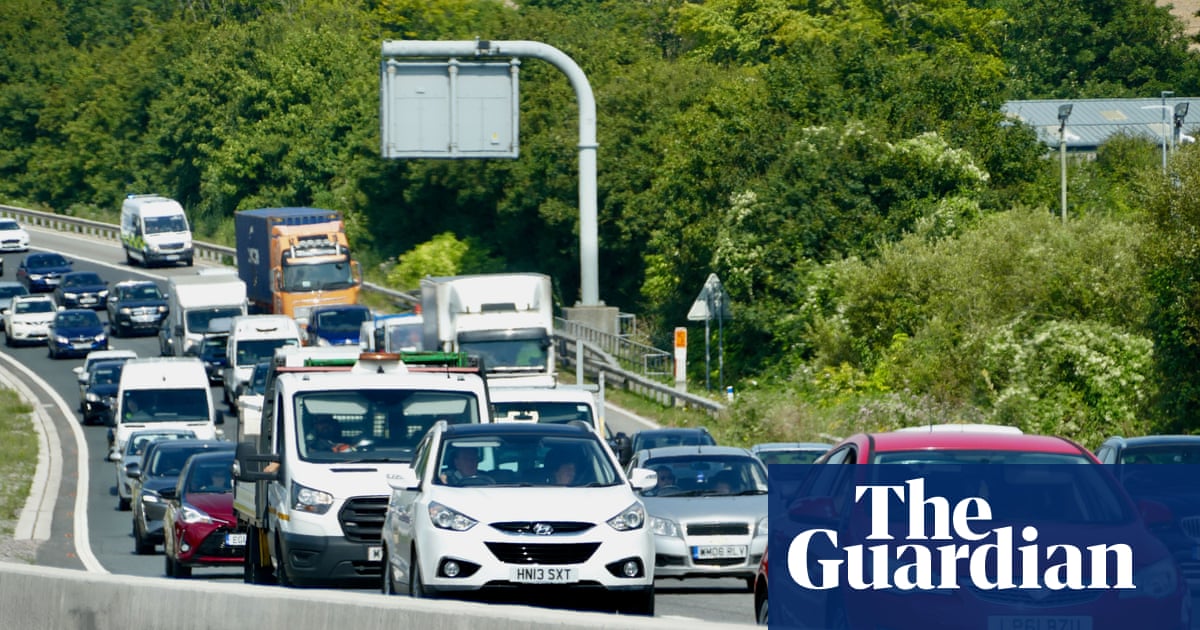Britons are gearing up for the busiest August bank holiday weekend on the roads in nearly a decade, with severe delays expected, particularly on routes leading to the Leeds and Reading music festivals. Despite a continued decline in overseas tourism, an estimated 19.2 million leisure trips by car are planned over the weekend, according to the RAC, the highest level since the organisation began recording traffic data in 2015.
Saturday 24 August is set to be the busiest day on the roads with 3.7 million getaway trips planned, slightly exceeding the 3 million trips expected each day over the remainder of the weekend. A further 6.2 million trips are planned at some point over the late summer bank holiday weekend, with drivers undecided on their precise travel dates. The RACâs research suggests that the vast majority of these outings will be day trips.
Alice Simpson, the RACâs breakdown spokesperson, advised drivers to âleave as early as you can to avoid the jams or be prepared to sit in some lengthy queues.â She reminded travellers that regardless of their destination, whether it be a festival, the coast, a theme park, or a visit with friends and family, the usual travel advice applies.
While British motorists are taking to the roads in record numbers, the number of overseas visitors to the UK this year is predicted to remain 5% below pre-pandemic levels, reaching 38.7 million, according to a separate report released on Monday.
The Centre for Economics and Business Research (CEBR) highlighted that while visitor numbers have surpassed last year's figure of 38 million, overseas travellers are spending less per capita, even when taking inflation into account.
Figures from the Office for National Statistics show that overseas visitors spent £31.1 billion in the UK last year. VisitBritain anticipates this figure to rise to £32.5 billion this year, a significant increase from the £28.4 billion recorded in 2019 before the pandemic.
However, the CEBR cautioned that after adjusting for inflation, overall tourist spending remains 8% lower than the equivalent figure in 2019, representing a £2.8 billion âholeâ in tourist spending.
The CEBR attributed this shortfall to a combination of factors, including post-Brexit travel barriers, the removal of tax-free shopping for tourists, and concerns surrounding recent riots in several towns and cities, prompting some countries to issue travel advisories regarding the safety of visiting the UK.
The CEBR also pointed out that the UK has become comparatively more expensive for some visitors due to substantial increases in accommodation, dining out, and airfares. The strengthening of the pound against the euro and Chinese yuan has also reduced the purchasing power of overseas tourists, though visitors from the US have benefited from a stronger dollar.
Despite the challenges for tourists, the Port of Dover anticipates over 20,000 cars travelling through its harbour over the August bank holiday weekend for both inward and outbound journeys. Peak hours are expected between 6am and 1pm each day.
Doug Bannister, the chief executive of the Port of Dover, explained that capacity at pre-border processing areas has been reduced due to ongoing works preparing for the introduction of a new EU entry and exit system in November, which might lead to extended waiting times. He reassured travellers that they will be able to depart on the next available sailing and advised them to arrive no earlier than the requested two hours before their scheduled departure.
Article
Business

Bank Holiday Chaos: Brits Take to the Roads for Busiest Getaway in Years

